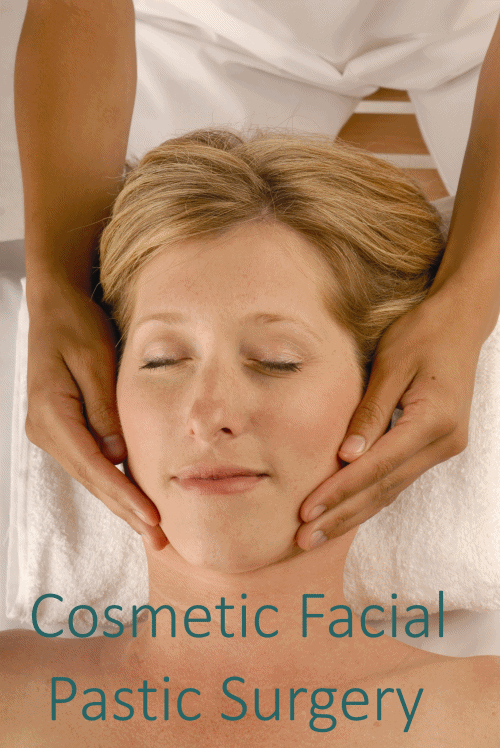Are you seeking gentle, effective support for post-surgical recovery, lymphedema, or oncology care? - Cary, NC

Reduce swelling. Ease discomfort. Support your healing journey with certified lymphatic care.
Call today to book your appointment (919) 228-9559
At Wake Medical Massage, our Manual Lymphatic Drainage (MLD) sessions use gentle, specialized techniques (Vodder method) to support the body’s lymphatic system. Whether you’re recovering from surgery, managing lymphedema, or seeking supportive care during or after cancer treatment, MLD can be an important part of a safe, coordinated recovery plan.
What is Manual Lymph Drainage (Vodder Technique)
Not all “lymphatic massage” is the same. At Wake Medical Massage, LLC, sessions are performed by a Certified Manual Lymph Drainage Therapist (Vodder Technique) and Licensed Medical Massage & Bodywork Therapist with nearly 20 years of clinical experience.
Manual Lymph Drainage (MLD) is a gentle, precise, medically recognized hands-on technique that supports your lymphatic and immune systems by stimulating the natural movement of lymph fluid. The strokes are light, rhythmic, and deliberately paced to encourage drainage into healthy lymph pathways without forcing fluid or applying deep pressure.
- Non-invasive and soothing — designed for safety and comfort
- Targets edema (swelling), scar adhesions, and restricted tissue mobility
- Often integrated into a broader plan of care (compression, compression garments, exercise, and physician follow-up)
Unlike general massage, MLD requires advanced anatomical training and a gentle, methodical approach that helps reduce swelling, accelerate post-surgical healing, ease discomfort, and promote recovery after cosmetic or medical procedures.
If you’ve had surgery, lymph node removal, or radiation — or simply want to improve lymphatic flow and immune function — certified care makes a difference.
“Let the lymph flow safely, effectively, and in the hands of an experienced professional.”
Who can benefit from MLD?
- Post-operative clients (cosmetic, reconstructive, orthopedic)
- People living with lymphedema or at risk for lymphedema
- Oncology clients seeking gentle, supportive lymph care during or after treatment
- Clients with post-traumatic swelling, scar tissue, or limited mobility
- Wake Medical Massage proudly serves clients in Cary, Raleigh, Durham, Chapel Hill, Wake Forest, and the greater Research Triangle area seeking gentle, clinical massage support for lymphatic health, post-operative recovery, swelling reduction, tissue comfort, and clients navigating cancer care and treatment-related side effects.
Post-Surgical Recovery
MLD can be a supportive adjunct to post-operative care when provided in coordination with your surgeon’s instructions. For many surgical clients, MLD helps to:
- Reduce postoperative swelling and discomfort
- Improve skin and scar mobility as tissue heals
- Reduce fluid stagnation that can delay comfort and mobility
Timing: Many clients start MLD within the first week post-op, depending on the procedure and medical guidance. We may require your surgeon's clearance.
Oncology Support & Gentle Lymph Care
MLD is frequently used as part of supportive care for people undergoing or recovering from cancer treatment. Our oncology-informed approach emphasizes safety, comfort, and collaboration with your medical team.
How MLD can help during or after cancer treatment (non-exhaustive):
- Helps manage localized swelling and treatment-related fluid retention
- Supports gentle tissue mobilization after surgery or radiation, within safe boundaries
- Promotes relaxation, reduces stress, and supports overall quality of life
Safety note: We follow oncology massage best practices — obtaining medical clearance, avoiding areas contraindicated by your oncology team, and modifying techniques based on your treatment timeline and lab values when applicable.
Lymphedema Management
For people with lymphedema, MLD is a core component of conservative management and is often combined with Complete Decongestive Therapy (CDT). Our approach is individualized and evidence-informed.
- MLD helps move lymphatic fluid from congested areas into healthier drainage pathways.
- When combined with compression bandaging/garments, exercise, and skin care (CDT), MLD supports long-term limb volume control and function.
- We assess each client for appropriate CDT components and coordinate with certified lymphedema clinicians when required.
If you have active infection, open wounds, or acute uncontrolled conditions, we will coordinate care and postpone MLD until it is safe to proceed with your clinician’s approval.
What to Expect During a Session
- Intake & Medical History: We review surgical reports, oncology status, medications, and any instructions from your medical team.
- Comfort & Positioning: Sessions are comfortable and quiet; we work within your pain and comfort levels.
- Gentle, Guided Technique: Light, rhythmic MLD strokes—no deep pressure over surgical sites or compromised tissue.
- Scar & Mobility Support: When safe, we include gentle scar mobilization and myofascial techniques to improve range of motion.
Why Choose a Certified Manual Lymphatic Drainage Therapist?
Not all “lymphatic massage” is equal. The term has become a buzzword used for everything from general wellness to post-surgical recovery. However, there is a major difference between a general “lymphatic massage” and medically recognized Manual Lymph Drainage (MLD).
Manual Lymph Drainage (MLD) is a specialized technique developed to gently and precisely stimulate the lymphatic system, supporting your body’s natural ability to move and filter lymph fluid. When performed correctly, it can reduce swelling, ease discomfort, and accelerate recovery after surgery or injury.
1. Understanding the Difference
Anyone can claim to perform “lymphatic massage,” but that phrase alone doesn’t guarantee proper training. MLD, on the other hand, is a structured clinical method requiring certification and anatomical expertise. A few hours of massage school or an online course do not meet the professional standards necessary for safe lymphatic work.
Certified training ensures that your therapist understands how to move lymph fluid along specific anatomical pathways and recognize when MLD is or isn’t appropriate.
2. What to Look for in a Qualified Therapist
Manual Lymph Drainage requires extensive post-graduate training for licensed massage or healthcare professionals. A recognized certification level::
- Certified Manual Lymph Drainage Therapist (CMLDT): At least 40 hours of approved training focusing on the Vodder or similar medically accepted methods
Would you trust your recovery to someone who completed a four-hour video course? True certification ensures your therapist meets the highest standards of safety and skill.
3. A Certified Therapist
When you find a therapist, ask:
- Where did you receive your MLD training?
- How many hours of instruction were completed?
- How much of your practice focuses on MLD?
- Have you worked with cases similar to mine?
Certified training and experience matter — especially for clients recovering from surgery, cancer, or chronic swelling. Your health and safety deserve the highest level of care.
Proper training is essential for safe lymphatic care. At Wake Medical Massage, your sessions are provided by a therapist trained in lymphatic anatomy and cancer-safe massage principles.
- Specialized education in Manual Lymphatic Drainage (Vodder Technique)
- Training in Complete Decongestive Therapy (CDT) and post-surgical lymphatic care
- Experience working with surgeons, oncologists, and lymphedema clinicians for coordinated care
Frequently Asked Questions
How soon after surgery can I start MLD?
Is MLD safe during cancer treatment?
Will MLD cure lymphedema?
Do you coordinate with my surgeon or oncology team?
Visit FAQ page for more information
Serving Cary, Raleigh, Durham, Chapel Hill & surrounding Triangle communities.
Wake Medical Massage, LLC
Board Certified / Licensed Medical Massage Therapist specializing in Manual Lymph Drainage (Vodder Technique), Complete Decongestive Therapy, and Post-Surgical Care.
Disclaimer: Manual Lymphatic Drainage (MLD) and massage therapy are supportive, non-invasive modalities—not substitutes for medical diagnosis or treatment. Always consult your physician before beginning any new therapy. Individual results may vary.

